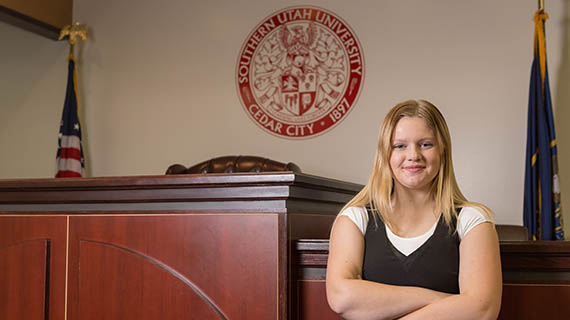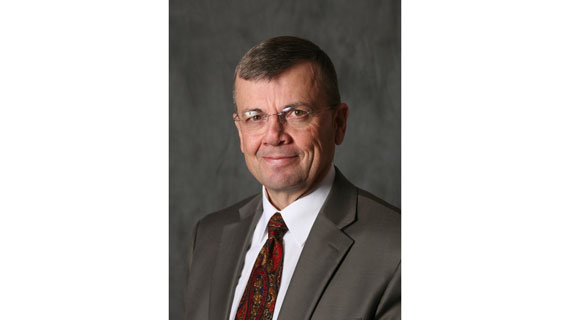What Can I Do With a Degree in Criminal Justice?
Posted: June 16, 2020 | Author: Kierstin Pitcher-Holloway | Read Time: 3 minutes
 On the Southern Utah University campus in Cedar City, Utah, there is a fully-functional mock courtroom, crime lab, mock crime scenes, and iPads with the actual software police officers use in their investigations of real crimes.
On the Southern Utah University campus in Cedar City, Utah, there is a fully-functional mock courtroom, crime lab, mock crime scenes, and iPads with the actual software police officers use in their investigations of real crimes.
If this type of coursework sounds exciting, you might be interested in pursuing a degree in criminal justice. At SUU, criminal justice majors study all of these things to prepare for work in a diverse and exciting field.
Here is a list of careers that are possible with a bachelor’s degree in criminal justice:
Law Enforcement
Most local police departments don’t require police academy candidates to hold a bachelor’s degree. However, having a degree in criminal justice often gives graduates a competitive edge.
Criminal justice graduates can find fulfilling careers in other areas of law enforcement. A bachelor’s degree also opens employment opportunities with federal law enforcement agencies like Homeland Security or the Federal Bureau of Investigation.
Private Investigation
Private detectives, otherwise known as private investigators, are licensed individuals hired by companies, groups, or individuals to provide investigative services. Private detectives are often hired by attorneys in civil and criminal cases.
Crime Scene Investigation
Crime scene investigators work for law enforcement. They collect, analyze, and process the evidence from crime scenes. This evidence can include anything from fingerprints on items to bodily fluids.
Computer Forensics
Computer forensic analysts are specifically trained to perform network traces and retrieve data from different devices like laptops or cellphone's. These devices hold information pertinent to ongoing investigations and can often be damaged. Because of the specific skill set necessary to qualify for these positions applicants must also be certified as a Global Information Assurance Certification Forensic Analyst.
Corrections
Corrections officers work with correctional facilities and probation officers work with parolees as they work to re-enter society after incarceration. The responsibilities of these officers can vary. A corrections or probations officer might be responsible for additional duties like testifying in court, conducting a parole hearing, writing an incident report.
Private Security
The undergraduate studies completed by criminal justice majors is great preparation for work in private security. A lot of organizations depend on private security to do different things like investigating suspicious parcels, assisting in emergencies, writing incident reports, and many other things similar to the duties of law enforcement officers.
SUU graduate Samantha Ryals used her degree in criminal justice to springboard her career in Washington D.C. She now works as a staff assistant for the Senate Republican Conference.
“On a daily basis I act as first contact for senators and their communications teams in the office as well as help the different teams with projects and deadlines,” said Samantha.
The community support and the experiential learning she obtained at SUU prepared Samantha to confidently enter the workforce in the nation’s capital.
The Criminal Justice program at SUU provides a positive learning environment for students to develop general working knowledge, ethical foundation, and technical skills to prepare them for professional careers in the criminal justice field.
This program is immersed in practical, street-based reality. Students gain the kind of practical experience that is applicable in whatever branch of criminal justice they decide to enter. Additional counsel on career opportunities, including exposure to professional agencies through an internship program, is also provided.
This article was published more than 3 years ago and might contain outdated information or broken links. As a result, its accuracy cannot be guaranteed.




